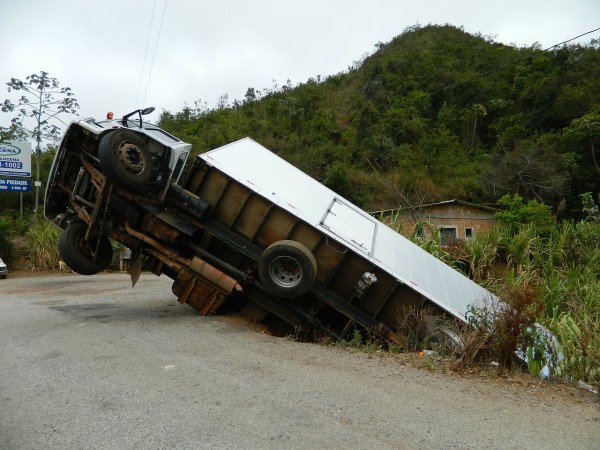
In the United States alone, there are up to 500,000 truck road incidents a year. Even if the accidents are not severe or fatal, many people are forced to deal with the aftermath of a traumatic experience. Just about anybody can be impacted by accident, from pedestrians to truck drivers.
It's no secret that commercial vehicles and large trucks are crucial to the American economy. However, their large size and power make them a dangerous presence on roads, and in the unfortunate event of an accident, chances are it'll take quite a toll.
Because trucks have such a presence on our roads, it is inevitable that accidents involving tractor-trailers, 18-wheelers or semi-trucks are so common. Many people think truck accidents are rare and an outlandish occurrence; however, they happen more often than we think. And teenagers are especially vulnerable to accidents on the road.
According to Julian Lewis Sanders & Associates, (juliansanderslaw.com) truck accidents can also leave a mark on the psyche, whether you survived one or lost a loved one to one. Many victims seek financial compensation due to emotional trauma. As with any traumatic event, people will not be the same until the matter is addressed. That means we have to be able to identify what the trauma of a vehicle crash looks like to take steps toward healing. Mental health is such an essential part of our overall health that when something traumatic happens to someone, we should all be concerned about it.
What Is Trauma?
Trauma is the emotional fallout after someone goes through or witnesses distressing events. This can be anything from war and violence to family dysfunction and accidents. The stress from the event triggers an emotional response that manifests differently from person-to-person but impairs their ability to function normally in their daily lives.
How Does Trauma Manifest After an Accident?
Accidents may trigger trauma in various ways, but at the core, what makes them so distressing is that they are sudden and unforeseen. Add to that the fact that trucks are massive vehicles and how rare it is for the accidents to be minor, and one can understand why they impact people so much.
Immediate responses after an accident are commonly classified as shock, which can manifest in emotional numbness and the person not knowing how they feel about what happened. This can also show up as denial and acting as nothing happened.
If someone survives, they might end up becoming hypervigilant, expecting danger around every corner. Truck accidents can cause anxiety and panic because the fight or flight response in our bodies gets triggered. Anxiety is not just an emotional response, it can manifest physically and cause panic attacks characterized by heart palpitations, shaking, nail-biting, sweating and bouts of crying.
It is also common to see a change in appetite, whether eating a lot more or a lot less, along with an extreme change in sleep patterns. Trauma can also manifest in feelings of anguish, despair and hopelessness. Depression is a common after-effect of a traumatic event.
The person might feel like they are not safe on the road and even start avoiding driving or leaving home because they are so afraid. If the accident had fatalities, the survivors could end up suffering from feelings of guilt. Survivors of truck accidents struggle with all these feelings that are amplified by the scale of the incident.
When someone else is the cause of the accident, this can trigger anger and hatred of the person, which can become debilitating and the central focus of the person's life.
The Solution
If you or someone close to you is experiencing the trauma following a truck accident, remember it is normal and not your/their fault. It is also important to note that the accident does not have to be significant for someone to be affected by it. Action must be taken immediately to help the person find healing.
Consider going for therapy to help you talk through the emotions and feelings resulting from the trauma. A professional will be better equipped to navigate the trauma and provide a safe space to be vulnerable. Trauma is not something that we are supposed to try and forget. Our psyche does not function that way. More often than not, the more we avoid trauma, the more it will keep showing up, affecting our emotional state, our relationships and our day-to-day lives. There are many ways that a person who went through the trauma of an accident can be supported to help them get back on their feet and heal from the incident. It is not an easy road, but it will help us lead a healthier and happier life.

